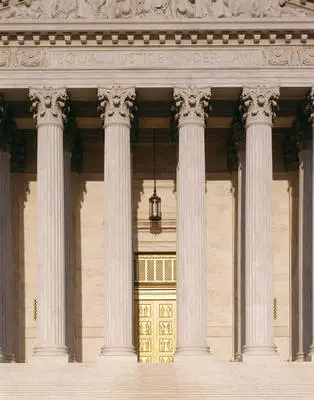Chemerinsky: High Court’s Union Dues Case May Change the Political Landscape


Amid the blockbuster decisions of the last two weeks of the U.S. Supreme Court’s term, a decision that received little media attention is likely to have a major political impact. In Knox v. Service Employees Union International, Local 1000, decided June 21, the Supreme Court clearly indicated a dramatic change in the ability of public employee unions to participate in the political system.
The usual approach is that employees who do not want to join the union and support its political activities must opt out. The Supreme Court ruled five years ago that if a state chooses it can require that union members who want to participate in political activities must opt in, though that is not the law in California and several other states.
In Knox v. SEIU, the court held the First Amendment rights of non-union members had been violated. The court could have decided the case on narrow grounds, simply holding that there should have been a calculation as to the percentage of the special assessment used for political purposes and that non-members should have been able to opt out of this. That was actually the position advocated by the plaintiffs, the non-union members who brought suit.
In light of this objection to the traditional opt-out procedure, the court held that for special assessments non-union members can be charged for political activities only if they affirmatively choose to provide funds. The court stated: “[t]herefore, when a public-sector union imposes a special assessment or dues increase, the union must provide a fresh Hudson notice and may not exact any funds from nonmembers without their affirmative consent.â€
The holding in Knox is narrow, but the majority’s reasoning is broad. The holding is limited to special assessments by unions, but the majority opinion could not be clearer in indicating the view that non-members should be required to opt in before their funds can be used for political activities. The result, assuming this becomes the law, will be a substantial impediment to political action by public employee unions.
There is a profound irony to the Supreme Court’s decision. In 2010, in Citizens United v. Federal Election Commission, the Supreme Court expressly rejected the concern that corporations should not be able to spend the money of their shareholders on political expenditures. In prior decisions, the Supreme Court specifically said that the government could restrict independent political expenditures by corporations so as to protect shareholders from having their money spent for political candidates they oppose. But Citizens United brushed this concern aside, overruled these decisions, and held that corporations can spend unlimited sums to have candidates elected or defeated.
In light of Knox, one solution for state legislatures will be to require opt-in for both corporations and unions. A state can adopt a law which says that neither a corporation nor a union can spend money on political activities without the consent of the individuals. If the Supreme Court is going to require opt-in for unions, it seems only fair and appropriate that the same be required for corporate political spending.
Both Knox and Citizens United came to the court posing very narrow questions. In both instances, the five conservative justices on their own substantially broadened the issues and significantly changed the law. Together, they are very much changing the political process in the United States, greatly increasing the influence of corporations and diminishing the influence of unions.
The Knox Decision is certainly an improvement in the fortunes of those workers who do not support unions’ radical political positions.

